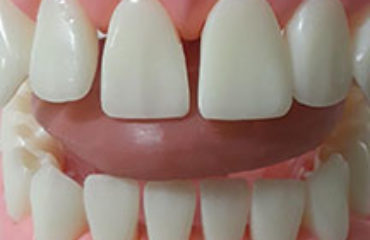Crib device at night for 9 yr old
Q: I have a bit of a dilemma with a client that I wanted to ask you about. She’s a 9-year girl who has who is in the point in therapy where she starts work with eating/drinking. Her orthodontist, who referred her to me (but I think doesn’t totally understand what we do) has insisted that she continue to wear her crib retainer at night. She wasn’t wearing it at all when she was doing the program with me, but when she went for a checkup, he wanted her to wear it at night. She has never been able to keep her tongue behind the crib and puts it under it. I believe that she’s doing quite well with the resting position and her mother said she noticed that her mouth was closed a lot more at night when she wasn’t wearing it, but now it’s not closed as often with the retainer. The parents don’t want to not listen to the orthodontist since he’s doing the treatment, but they can see that the retainer isn’t right either. The orthodontist feels it’s better than nothing since it will somewhat help to keep her tongue back as well as keep her teeth from moving forward more. Any advice/suggestions as to what to tell the parents? It would be much appreciated!!
A: The following will lead you to the position statement on such devices. You can share the info with the orthodontist in person or you can just give him a copy….but it describes your position and then he must recognize that he has made that decision in spite of an international organization of DDS, orthodontists, SLP, and RDH stating that it is not acceptable. The other thing you can do is provide the mom with the position paper and she can inform him that since she is having her child see you for orofacial myology, there is no need for it in her case. Here is the webpage: https://orofacialmyology.com/wp-content/uploads/2018/10/orofacial-myology-position-statement-regarding-appliance-use-for-oral-habit-patterns.pdf Additionally, it is important that you let the orthodontist and all your referral sources know what you do and why cribs are not necessary, Because you are nearby and are trained to use pleasant therapy techniques which include habituation training for the patients, they don’t have to consider using appliances that often create more problems, don’t help the habituation process, and are very disconcerting to most patients.

